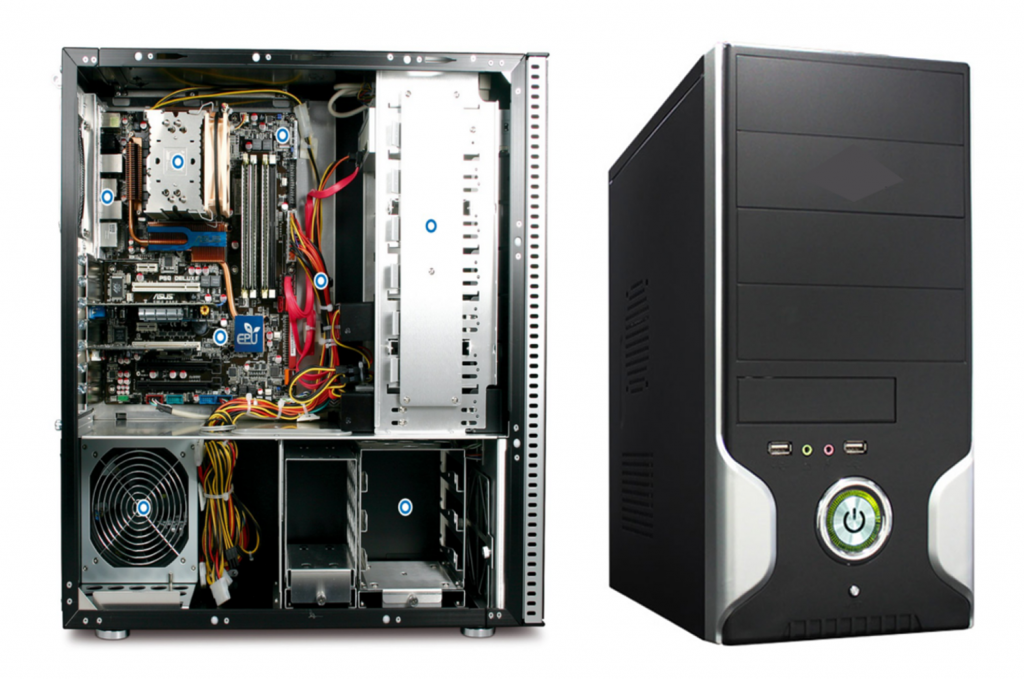the present-day tech-savvy world, computers are increasingly essential instruments in not only private and business environments. However, the fast pace of innovation frequently creates a abundance of excess computer parts that remain unutilized, presenting a significant possibility for upcycling enthusiasts and savvy shoppers. As businesses and individuals improve their systems, the bits of previous technology can be reused, restored, and given new life, contributing not only to eco-friendliness but also to budget-friendly solutions for those looking to create or improve their computing systems.
Buying surplus computer parts can be a satisfying venture, provided you are knowledgeable about the market and how to maneuver the environment. Whether you're a gamer on a tight budget or a do-it-yourself tech hobbyist, understanding the intricacies of surplus components can provide access premium gear at a small portion of the price. This guide intends to clarify the method of buying surplus computer parts, covering important tips, best practices, and factors to consider before completing a buy. Join us as we explore the potential of upcycling with surplus computer components and improve your tech experience.
Manual to Purchasing Extra PC Components
As it pertains to buying extra hardware, the initial step is to identify reliable suppliers. Seek out reputable retailers, e-commerce sites with good reviews, and specialized mills. It's vital to read reviews and examine the return terms to guarantee your investment is secure. A lot of vendors will also supply detailed descriptions and specs of their products, which can aid you assess their condition and suitability for your requirements.
Then, acquaint yourself with the kinds of items you desire. Would you require a mainboard, central processing unit, or RAM? Understanding your specific needs can spare you hours and stress during the acquisition process. Pay attention to compatibility concerns, like socket specifications and RAM specifications, which can influence whether a part will operate with your existing setup. Obtaining a broad understanding of price trends can also assist you in spotting a steal versus an expensive item.
Lastly, examine the quality of excess components before finalizing a transaction. Search for visible flaws, degradation, and any signs of potential issues. Whenever you can, ask for testing results or assurances, as these can provide further confidence of functionality and reliability. As you accumulate knowledge purchasing excess parts, you'll cultivate a discerning ability for excellence and be better prepared to choose wisely on your next buys.
Assessing Condition and Worth of Surplus Components
When assessing extra computer parts, the initial step is to assess their physical state. Look for any indications of usage, such as scratches, oxidation, or discoloration. Components that appear well-maintained and tidy often indicate better care over their lifespan. Pay particular focus to connectors and ports; any damage or bent pins can affect connectivity and functionality. Additionally, look for original boxes and manuals, as these can be indicators of whether the part has been properly cared for.
Next, it's important to confirm the specifications against your needs. Surplus parts may present a range of performance levels, and knowing exactly what you need will help you avoid the pitfalls of incompatibility. For instance, when picking a used mainboard, ensure that it is compatible with your desired CPU, memory type, and expansion options. Investigating computer surplus before making a decision can save you considerable time and effort in the future.
Lastly, think about the vendor from which you are purchasing the surplus parts. Reliable suppliers will often provide warranty options or guarantees that can add substantial value to your purchase. surplus computer equipment and ratings should also be checked to gauge the reputation of the seller. Focusing on reputable sources not only increases your chances of finding high-quality parts but also helps ensure that you are not unknowingly buying counterfeit items.
Maximizing Your Buy:

Suggestions for Success
As you diving into the realm of extra hardware parts, being informed can truly matter. Commence by researching trustworthy vendors and sellers to ensure you are dealing with high-quality products. Seeking ratings or testimonials can help you gauge the credibility of a provider. Additionally, educate yourself with price ranges for components so you can recognize a bargain when you see one. This initial groundwork is crucial for effective shopping.
Another key piece of advice is to rigorously evaluate the state of the items you intend to purchase. Always make sure to ask for details about the part's previous use and usage, and whenever feasible, test the component before completing the buy. For Discover More Here like motherboards, processors, and graphics cards, a physical inspection can reveal potential issues that may not be visible in digital advertisements, helping you to prevent costly blunders.
Finally, consider the long-term implications of your buying decisions. Select for components that offer compatibility with a variety of platforms, especially if you intend to upgrade in the long run. Understanding the durability and efficiency of surplus components will assist in rendering economical choices. Stay open to bargaining and stay composed as you search for the greatest offers; your efforts will eventually boost your achievements in upcycling.
